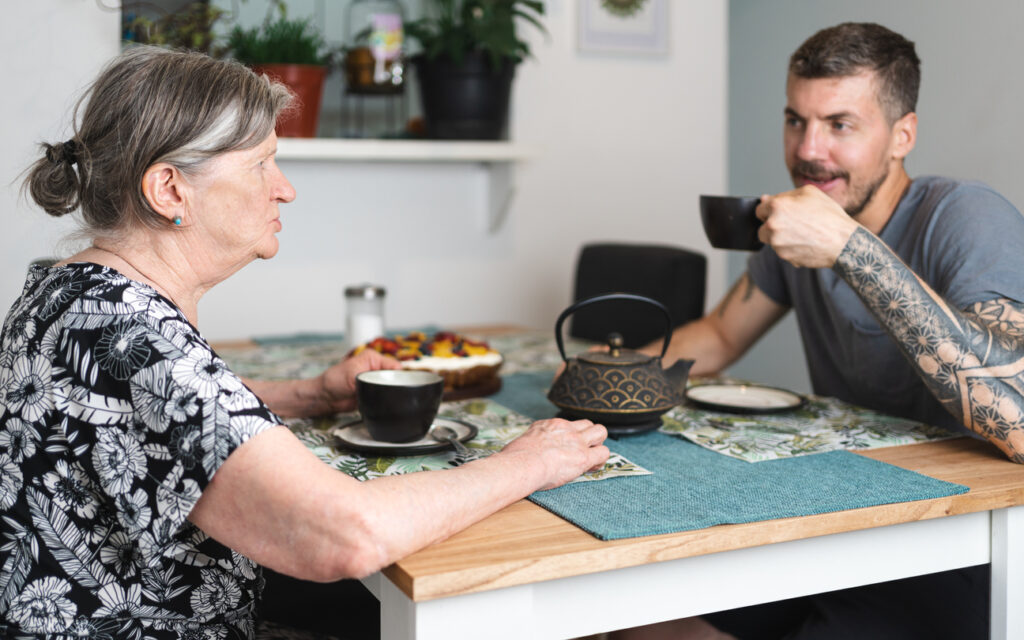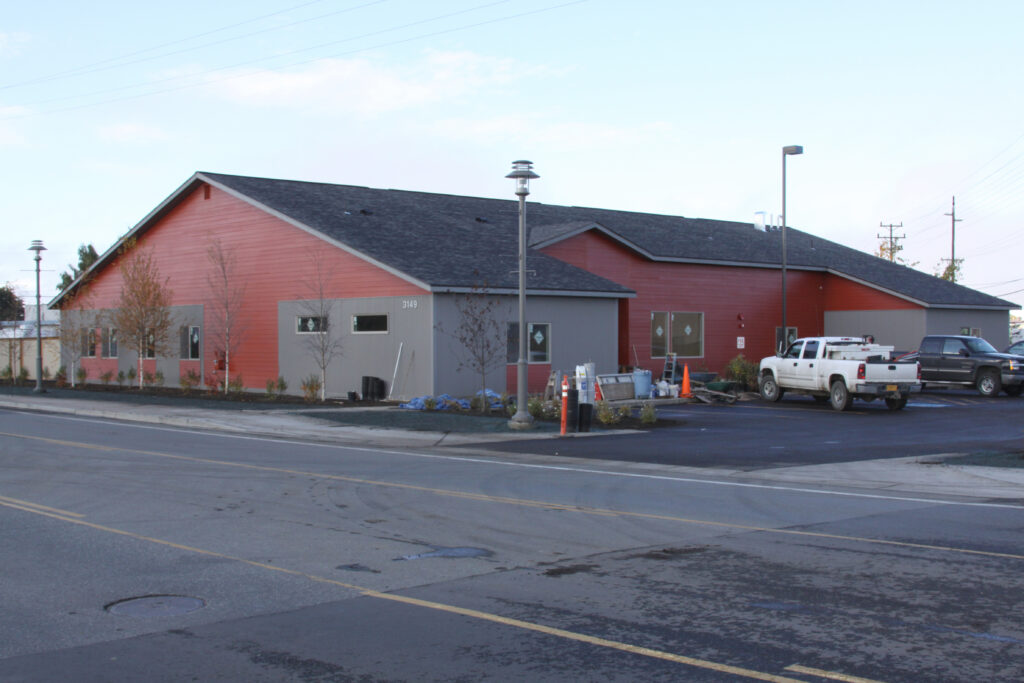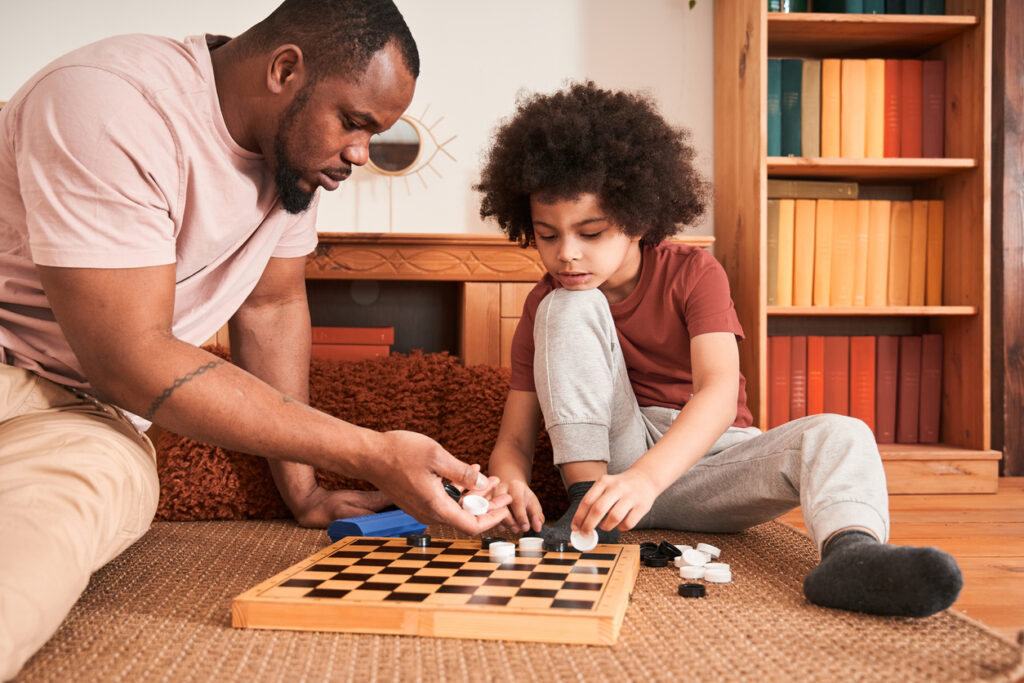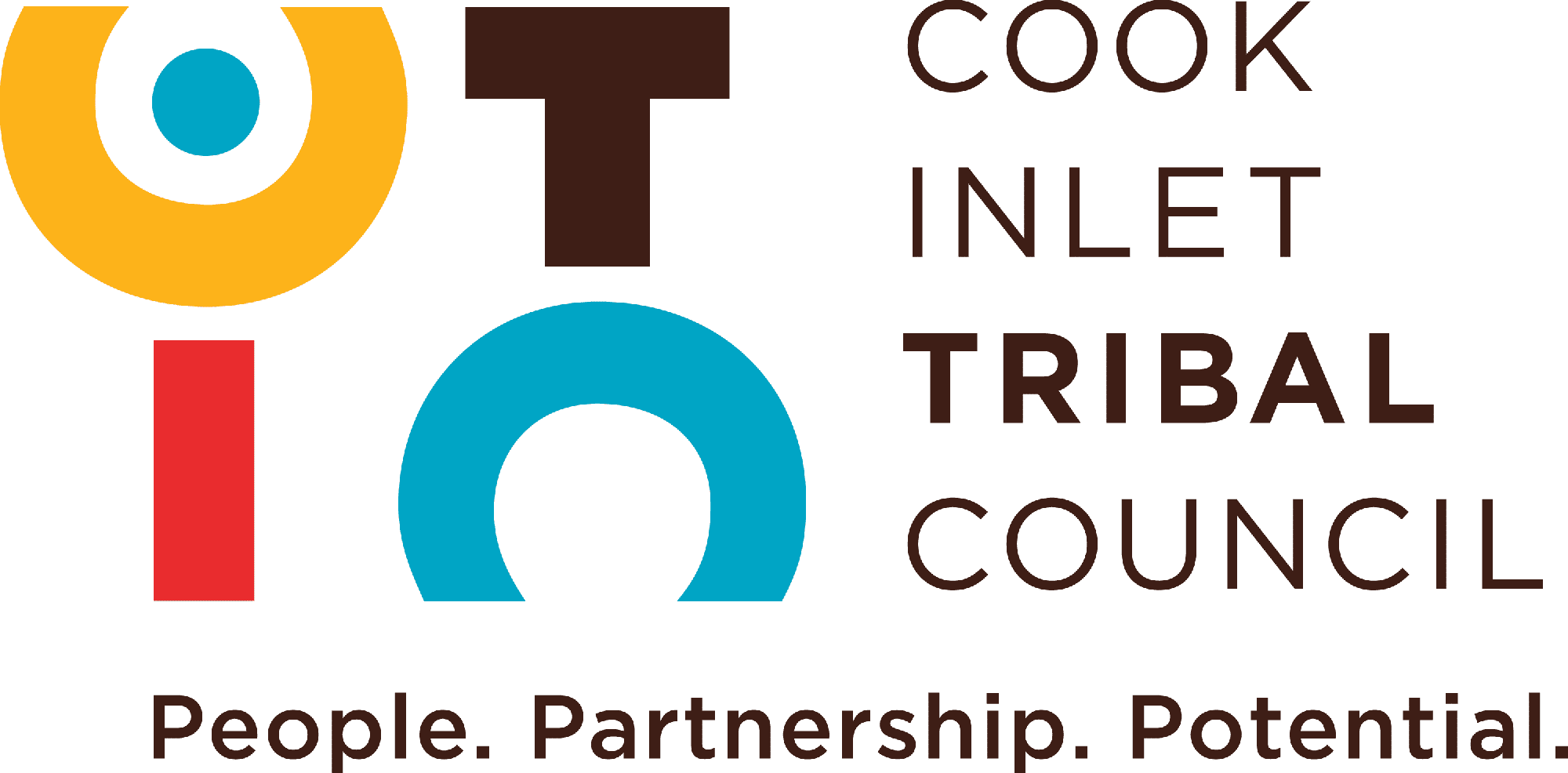28 Jul Building Lasting Connections at Chanlyut
Program participants welcome loved ones as residential treatment center reopens to family visitation

On Christmas Eve 2022, for the first time since the start of the COVID-19 pandemic, the residents of Chanlyut welcomed family members and friends into the treatment center. It was a special occasion—but it was also the re-establishment of regular visiting hours for individuals living at Chanlyut.
“This has been so freeing and normalizing for all of our program participants,” said Chanlyut Program Manager Daniel Perkins, who took over supervision of CITC’s short-term residential treatment center in June of 2020.
At that time, Chanlyut was undergoing a transition in its model of care; new staff were coming on board, as well. After not being able to welcome visitors for two years, staff worked hard to revise the process for clearing family and friends for visitation.
The effort was worth it, Daniel said. “To have visitors coming into this space and supporting our participants has been really empowering. The healing that happens in those relationships has been observable.”
A Family’s First Days
A lot can happen in six to eight weeks. That’s the minimum stay at Chanlyut, where residents receive re-entry support services, including housing, job training, life-skills development, and recovery support. Residents also receive varying levels of care, depending on their needs, from master-level therapists, case managers, and substance use counselors.
For John Doe[*], six weeks of separation from his family would have meant missing out on the first six weeks of his newborn child’s life. Because Chanlyut has reopened to visitors, though, Joe got to experience his baby’s earliest milestones.
“The bond that he was creating as a dad with his baby was really special,” Daniel said. “By reopening to visitors, we were able to facilitate a space where that need in his family isn’t ignored, but encouraged and fostered. As a dad myself, I really valued the opportunity to do that.”

Visible Improvement
Joe also got to spend time with his fiancée during visitation. Allowing approved family members and close friends regular visits helps strengthen the support systems program participants will rely upon when they graduate from Chanlyut.
“It’s really important for family members and friends who are going to be part of that support to stay current in who the program participant is becoming,” Daniel explained. “It gives them time to acclimate to the changes the individual is making, to be able to trust those changes.
“A lot of times, the participant’s loved ones have seen them when they’re not at their best,” he added. “So it’s all the more important for the participant to be able to enter those moments as their current, honest selves, and to show their friends and family the improvements they’ve made.”

Working Toward Healing
Visitation is held every Monday, Wednesday, and Saturday evening. On Wednesdays, Chanlyut staff organize game nights or activities in the facility’s back yard. The other nights are unstructured, allowing visitors and Chanlyut residents to connect in their own ways.
Some do it through food. “It doesn’t matter if it’s home-baked cookies or akutaq—food is how we build our best memories together,” Daniel described.
Before and after visitation days, program participants have the opportunity to talk with Chanlyut’s clinicians. It’s an opportunity for participants to assess their goals in the relationships they’re repairing or maintaining and to process what happened during the visit. Support from Chanlyut staff helps participants make additional moves toward healing through their visitations.
A Change of Heart
Not everyone welcomes the opportunity to reconnect—at least, not at first.
“Sometimes we have a participant who doesn’t want anybody to come visit them,” Daniel shared. “Then they see a few other visitations happening, and they change their mind and start asking friends or family to come.
“Those seem to be particularly powerful first visits because you can see a shift in somebody who […] has been afraid to risk others saying, ‘No, I don’t want to visit you.’ Seeing the value in those visits encourages them to reach out anyway and make those connections.”

Recovering Together
Chanlyut staff is also considering issuing clinically supported passes for some program participants. Passes would allow participants to go into the community with one of their sponsors to attend specialized meetings or other approved activities.
For now, visitations are handled on site—although, in certain circumstances, exceptions can be made.
When Joe Smith[*] started treatment at Chanlyut, he wasn’t the only one in his family seeking help with recovery; he and his sixteen-year-old daughter had agreed to go into treatment together. Joe’s daughter entered a separate treatment facility.
“We facilitated a standing pass for him to be transported to visit her at that facility, so they could maintain that bond and grow in their recovery process together,” Daniel said.
Recently, Joe graduated from Chanlyut. Case managers helped him create a housing plan to ensure that he’ll have an apartment with two bedrooms, where his daughter can live with him.
“Joe has a job. They’ve gone from being homeless and living in their vehicle to both of them coming through treatment, being self-sufficient, and supporting each other,” Daniel described.
Chanlyut is a short-term residential treatment center in east Anchorage serving both men and women with a minimum stay of 6–8 weeks. Program participants are provided re-entry support services, including housing, job training, life-skills development, and recovery support. To learn more about Chanlyut, or to access CITC’s recovery programs, visit our Recovery and Addiction Services page.
[*] Pseudonyms have been used throughout this story to maintain participant privacy.


